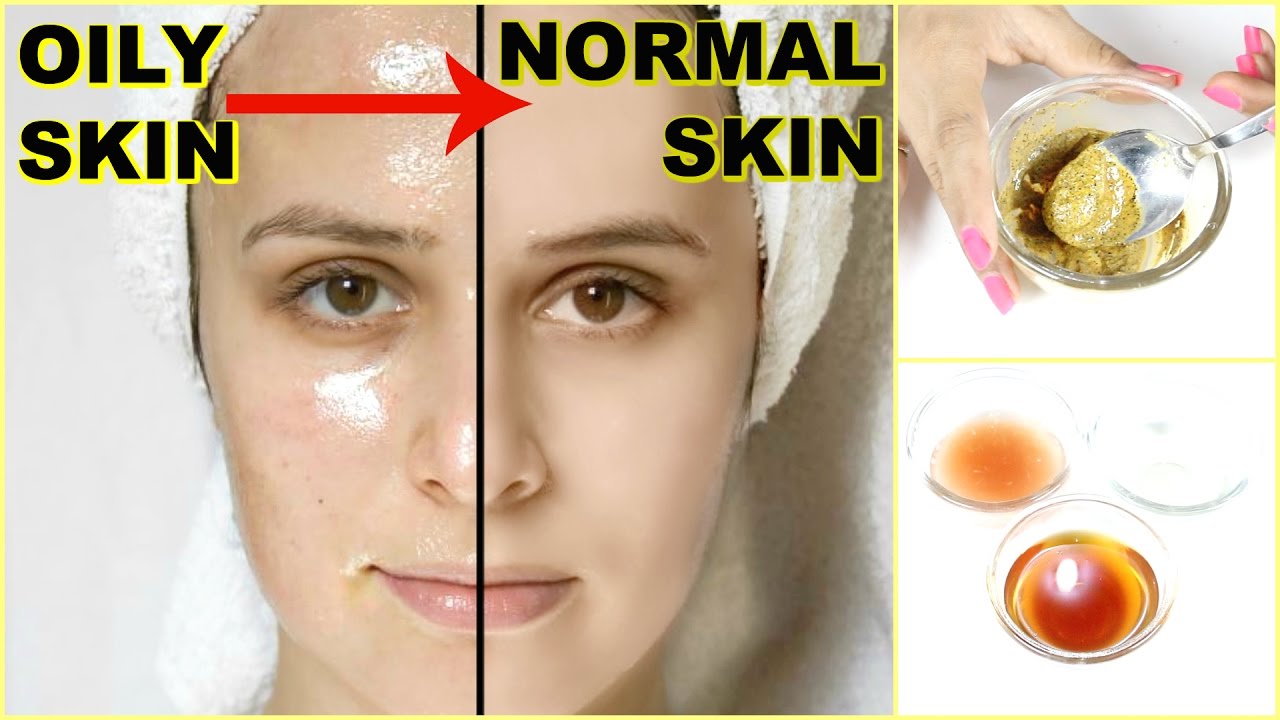1. Find the right cleanser.
It might sound counterintuitive, but oil cleansers were made for greasy skin types. The oil in the face wash attracts your skin's sebum, so you can rinse both away without stripping your face. "Your skin should feel soft, not tight, after washing," says Dr. Waldorf. If oil-based cleansers aren't your jam, she also recommends ones containing salicylic acid. It not only exfoliates and removes pimple-causing buildup, but the powerhouse ingredient is also a lipophilic—meaning it likes fat—so it goes straight to the source (hint: the oil in your pores).
2. Go easy on the toner.
Instead of reaching for toner every day to control oil, use it once or twice a week at most. And if it's an astringent (most likely containing drying alcohols, menthol, camphor, or peppermint), stop using it altogether. Overusing toner can lead to sensitive skin, which might not be able to tolerate an acne regime. And "although they can dehydrate the skin's surface temporarily, they can be irritating, causing skin to produce more oil," says Jordana Mattioli, LE, a medical esthetician at Complete Skin MD in NYC.
3. Hydrate, hydrate, hydrate.
One of the biggest mistakes both Dr. Waldorf and Mattioli see their oily-skinned patients make is skipping moisturizer. "Moisturizing is important to keep the skin's barrier intact," explains Dr. Waldorf. This key outer layer of skin is in charge of blocking out external irritants (like bacteria or UV rays) and keeping important moisture inside. But you don't need to use creams with heavy duty ingredients like shea butter or coconut oil. In fact, your shouldn't. "Although they're beneficial for dry skin," says Mattioli, "they are known to clog pores on oily skin." Instead look for lightweight lotions or serums containing hyaluronic acid or glycerin. "Both act like microsponges to pull moisture into the skin and hold it there," says Dr. Waldorf.
4. Consider a retinoid.
AKA some type of vitamin A product, which speeds up cell turnover, making it one of the best anti-aging. But it also works wonders for acne. "It will reshape the lining of your pores, so oil comes out easily as opposed to getting trapped and causing a clogged pore, blackhead, or pimple," explains Mattioli. The strongest formulas used to require a prescription, but Differin, $29 (a previously prescription-only version) recently became available over-the-counter
5. Alternative your actives.
Overusing powerful ingredients on any skin type can lead to irritation. But on oily skin, that irritation manifests itself as more oily (lose, lose!). Mattioli tells all of her clients to stick to one active a night. That means if you use a chemical exfoliator with low concentration of acids or enzymes, which you should, use it only on the nights you're not using your retinoid product.
6. Consult a dermatologist early.
Leyda Elizabeth Bowes, MD, a dermatologist at Bowes Dermatology in Miami, blames certain brands and websites for perpetuating unhealthy fads and myths about the number of products and regimen steps required to maintain glowing skin. "Frankly, all that will make the skin worse," she says. Rather than play a guessing game, defer to your dermatologist. And if you're struggling with excess oil or mild, acne (blackheads and whiteheads) at any age, see your dermatologist before it worsens and becomes harder to treat.
7. Choose your makeup wisely.
When it comes to your skin, avoid pore-clogging foundations that feel heavy. Look for lighter textures and keywords like oil-control or mattifying. And if there's only a little you want to cover up, choose powder over foundation. Regardless of your product, Dr. Bowes stresses removing makeup before you go to sleep, "or even better, right when you come home, so your skin can breathe."



 Contact Us
Contact Us






 Hospitals
Hospitals
 Doctors
Doctors
 Diagnostic
Diagnostic
 Pharmacy
Pharmacy
 Health Tips
Health Tips
 Blog
Blog

























Comments